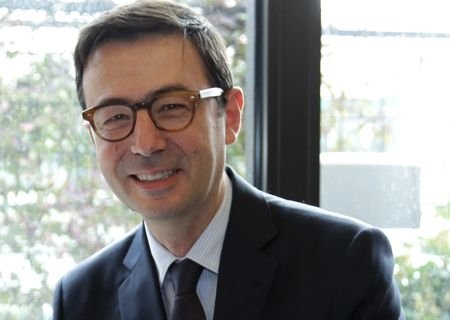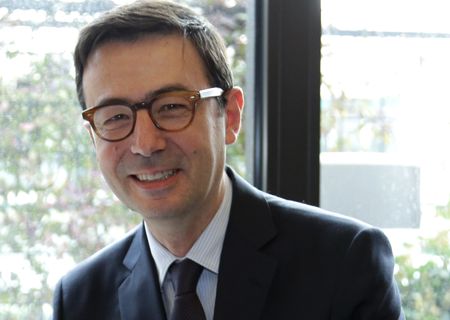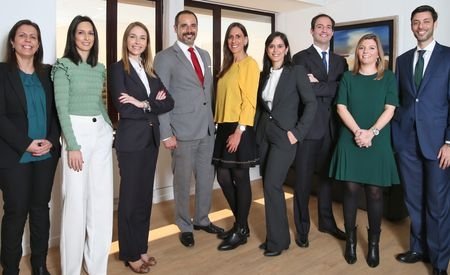New era

Cuatrecasas CEO Jorge Badía recently won a hotly contested leadership election, now he wants to increase the firm’s global reach, tackle the diversity challenge and win the battle for the best talent.
 Cuatrecasas’ recent leadership election was probably a bit more competitive than Jorge Badía would have liked. Despite the fact he has been the firm’s managing partner since 2015, when it came to the recent partner vote for the firm’s new CEO earlier this year, he faced a challenger. His rival was Cani Fernández, the firm’s EU and Competition partner, who during the period 2003 to 2018, was coordinating partner of the firm’s competition and EU practice and managing partner of Cuatrecasas’ Brussels office. Widely respected within the firm, and seen as someone with many leadership qualities, Fernández was viewed as a serious contender for the role. But, despite the efforts to topple him, Badía saw off the challenge and held on to the top job. To his credit, Badía has been extremely gracious in victory. “I think it’s a good thing that there were other options,” says Badía, “The trust of our partners is very important, they are not only shareholders who have a financial interest in the firm, but they are people who work here – yes, the fact is you are the boss, but it is the partners who choose you, and having their trust is fundamental”.
Cuatrecasas’ recent leadership election was probably a bit more competitive than Jorge Badía would have liked. Despite the fact he has been the firm’s managing partner since 2015, when it came to the recent partner vote for the firm’s new CEO earlier this year, he faced a challenger. His rival was Cani Fernández, the firm’s EU and Competition partner, who during the period 2003 to 2018, was coordinating partner of the firm’s competition and EU practice and managing partner of Cuatrecasas’ Brussels office. Widely respected within the firm, and seen as someone with many leadership qualities, Fernández was viewed as a serious contender for the role. But, despite the efforts to topple him, Badía saw off the challenge and held on to the top job. To his credit, Badía has been extremely gracious in victory. “I think it’s a good thing that there were other options,” says Badía, “The trust of our partners is very important, they are not only shareholders who have a financial interest in the firm, but they are people who work here – yes, the fact is you are the boss, but it is the partners who choose you, and having their trust is fundamental”.
Badía has spent his entire career at Cuatrecasas, the firm he joined back in 1987 and the place where he feels he has learnt a lot of life lessons. He has some significant challenges ahead of him, but the belief is the firm has a clear ‘roadmap’, which incorporates international expansion (the firm recently opened an office in Peru) and the goal of remaining a heavyweight law firm in Spain. But the number one priority is people. Badía has been the right-hand man of the firm’s senior partner, Rafael Fontana, since 2015. His recent election win comes on the back of a year in which the firm’s revenue grew by a notable 12 per cent to €277.4 million. The recent election means he has a mandate for the next four years and it also signifies an element of change at the top – Fontana has taken on more of an institutional role, which means that Badía has assumed more executive power. “We have a very trusting relationship,” says Badía of his interactions with Fontana. “We are very complementary; he will take charge of the firm’s institutional relations and the relationship with the partners and I will be focused on the dayto-day”.
CHAMPIONS
A key objective is to ensure that Cuatrecasas remains a “national champion”, as Badía puts it. This is because Badía identifies global firms that are trying to gain a foothold in the Spanish and Portuguese markets as one of the biggest threats to his firm. He adds that this is a challenge that domestic firms in France and Germany have already faced. “Being able to resist this and remaining one of the main references in terms of national offices is a very important challenge,” Badía says. The firm is also very focused on being one of the top choices for clients when it comes to handling very complex or sensitive matters. Elaborating on this theme, Badía warns that it is dangerous to slip towards more “commoditised” services, that is services that have less value. In his view, the real challenge is to “not only be a champion in sales and have a dominant position in our main markets, but to do so by handling the type of cases we want, which are very important and complex cases.” However, in order to successfully achieve these goals, it is vital that law firms increase their global reach. The internationalisation of the firm, especially in Latin America, is another of the key parts of the road map that also incorporates the firm’s current strategic plan, which runs until 2020. However, in order to be a ‘champion’ in Spain and Portugal, handling the best cases for the best clients is not enough. “Today our clients have global needs and we have to serve them and give them solutions from other jurisdictions – having an adequate international footprint is another of the great challenges, if you want to be involved in major infrastructure work, or in big litigation, you have to have a greater global reach,” says Badía. The firm’s operations in Portugal will also be an important factor in the firm’s development in the coming years. “We have had two very good years in Portugal, which has been a major recipient of foreign investment, and there have been significant transactions in sectors such as finance, energy, and real estate – fortunately we have been involved in many of these big transactions,” Badía says. There have been market rumours about friction between Cuatrecasas’ Spanish and Portuguese operations, but Badía insists that both offices are fully integrated, and that they work as a single unit. The objective, he says, is to be a leading firm in Portugal so that “the world comes to us because we are a great Portuguese firm.”
OPENING DOORS
In addition, the presence in Portugal, according to Badía, opens doors to markets that Cuatrecasas would not be able to access as a Spanish firm. The firm often trades in China on the basis of it being a Portuguese firm. “It [the Portuguese operation] opens the door to the African market, which will be increasingly more important”. While providing greater value for clients and expanding the firm’s international operations are important priorities, the firm’s key focus is people. “We have an outward-facing project, but the engine is very important, we have to be able to give our lawyers a very attractive career, to generate a virtuous circle,” says Badía, who is well-placed to comment on this topic. He joined Cuatrecasas 32 years ago and he says the firm has not only provided him with legal expertise, but it has also taught to him work as a team and be open to the world. “For me it has been a school for more than 30 years in which I have been continuously facing increasingly important challenges, and this is what we have to achieve for our lawyers – we have to take care of people or it does not work.” Earlier this year, the firm’s recruitment of a new lawyer generated considerable publicity. The new face was former Spanish deputy prime minister Soraya Sáenz de Santamaría, who, after some discreet negotiations, joined the firm as a partner. “We took the initiative and approached her, she has not come to open doors for us, nor to use her influence or promote her agenda – she has come to make a career.” Badía describes Sáenz de Santamaría as a very easy-going person who is a team player – he also stresses that both parties have agreed that she will not get involved in any matters that could put her on a collision course with her political past. Consequently, they have decided to avoid any matters related to regulated sectors, for example, in order to avoid any questions arising about her independence.
To read the article in full please download issue N.85 here












